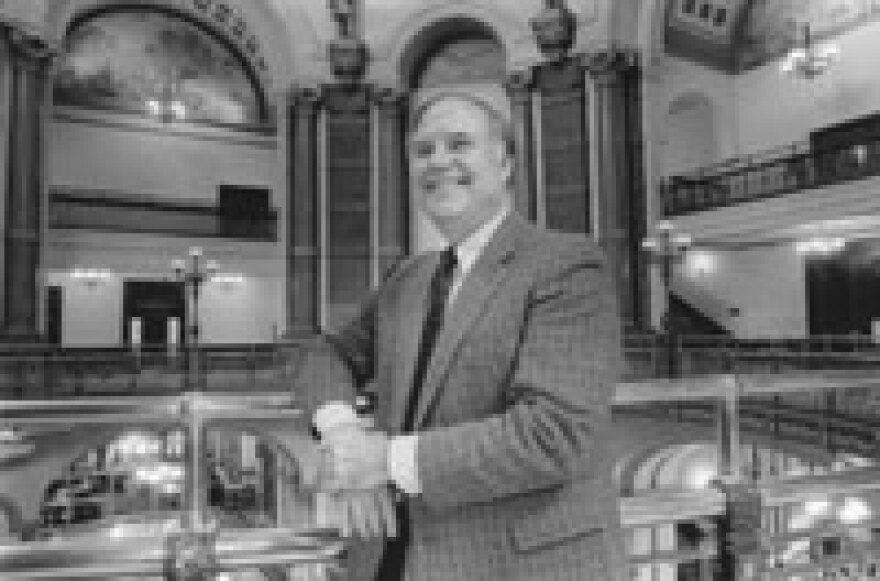Everybody knows that holding Illinois' presidential primary in mid-March virtually assures that a front-runner will have all but locked up both major parties' nominations by the time Illinoisans cast ballots.
The 2008 presidential campaign figures to be the most wide-open contest for the White House in decades. Not since 1928 has neither a sitting president nor a sitting vice president sought his party's nomination for the top spot.
And as usual, Illinois voters will have little to say in who the Democratic and Republican standard bearers will be, despite the meteoric rise of U.S. Sen. Barack Obama to the top tier of potential Democratic nominees.
Old news, right? Everybody knows that holding Illinois' presidential primary in mid-March virtually assures that a front-runner will have all but locked up both major parties' nominations by the time Illinoisans cast ballots.
That's why the Democratic state chair, House Speaker Michael Madigan, wants to move the primary date to the first Tuesday in February, which falls on the 5th in 2008.
The goal, said Madigan in unveiling the proposal, is that "Illinois will be able to participate in the presidential election process, but more importantly, Illinois will be able to mark up for Barack Obama."
Madigan is certainly correct that holding the presidential primary on March 18, as now scheduled, likely will determine little more than which of the local party faithful will win convention credentials.
In fact, a ballpark survey of the delegate selection process suggests that perhaps 90 percent of the Democratic delegates will have been determined by a year from now, while about 85 percent of the GOP delegates will have been chosen.
What's not so clear, however, is whether moving the Illinois primary to February 5 will give the state a major role in choosing party nominees. The uncertainty stems from a similar "rush to the front" mentality at work in other states across the nation, including such mega-prizes as California and Florida.
Legislation to move the California primary to February 5 is moving through that state's Assembly with the support of Gov. Arnold Schwarzenegger, while Florida lawmakers from both parties are pushing for a 2008 primary date one week after New Hampshire, probably January 29.
In all, almost 20 states are moving toward the first Tuesday in February or earlier for their presidential primaries, according to a survey by the National Association of Secretaries of State, whose members run elections in about three-quarters of the states.
The rationale is the same in virtually all cases — a desire to play a meaningful role in the nominating process. That traditionally has begun with the Iowa caucuses, set next year for January 14, and the New Hampshire primary, which by state law must occur one week before any "similar election."
"We know for sure that Iowa and New Hampshire do not represent the diversity of the United States," the sponsor of the Florida legislation told a House committee there last month. "We know the state of Florida does. We know that, as Florida goes, so the country goes."
Similar sentiments are being voiced around the country. Indeed, Democratic Party leaders last year approved Nevada caucuses and a South Carolina party primary for January 2008, as a way of bringing more diversity to the early stages of the nominating process.
But national officials of both major parties are not pleased with the nationwide rush to the front. Perhaps foremost among their reasons is the enormous, early fundraising burden placed on candidates hoping to compete in large states with expensive TV markets. The foreshortened political season also gives voters less time to assess candidates and their ideas before making a choice, increasing the possibility of buyer's remorse by the time the nominating conventions roll around in summer to rubber-stamp the decisions made months earlier.
Neither promising more convention delegates to states willing to hold later primaries, nor threatening to reduce delegate allotments to ones going too early, have cooled the national fever to move to the head of the line.
Given that trend, moving the Illinois primary to February 5 seems a no-brainer, if the state's voters are to have any voice in picking their parties' nominees.
Yet the earlier primary might be at best a wash for Obama. If California, Florida and other populous states all vote on the same day, other Democratic hopefuls can say legitimately that they're conceding the Illinois vote to the state's junior senator while they wage coast-to-coast battles for delegates on more neutral ground. And should Obama fail to win near unanimous support from Democratic voters here, critics are sure to question his electoral appeal nationally.
Is there a better way?
The nation's secretaries of state believe so, and last month called for adoption of a rotating regional system for presidential primaries. Under the proposal, states would be grouped into four geographic areas — Eastern, Southern, Midwestern and Western — in each of which presidential primaries would be held in the same month, either March, April, May or June. A different part of the country would kick off the voting every four years, with each region going first once every four presidential cycles. Illinois would be the most populous of the Midwestern states, ensuring that candidates could ignore the Prairie State only at their peril.
Iowa and New Hampshire would keep their early status, which the secretaries' association said would allow under-funded and less well-known candidates to compete through "retail politics," the door-to-door, grass-roots, personal campaigning that typifies the two early states, which together have fewer residents than Cook County.
Until some such reasonable nominating plan is adopted, though, Illinoisans might as well resolve themselves to picking presidential nominees right around Groundhog Day.
Charles N. Wheeler III is director of the Public Affairs Reporting program at the University of Illinois at Springfield.
Illinois Issues, March 2007






